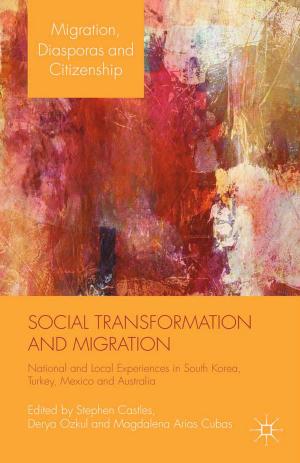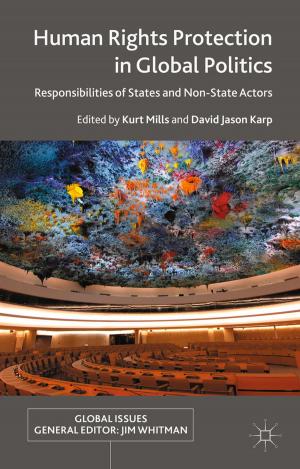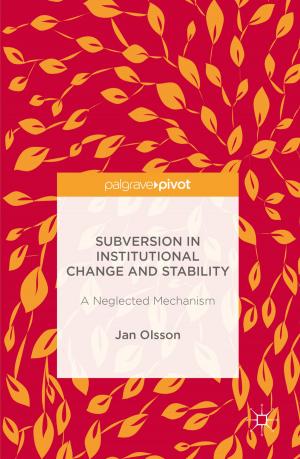Human Rights in a Globalizing World
Nonfiction, Social & Cultural Studies, Social Science, Sociology, Political Science| Author: | Darren J O'Byrne | ISBN: | 9781137335982 |
| Publisher: | Palgrave Macmillan | Publication: | October 26, 2015 |
| Imprint: | Palgrave Macmillan | Language: | English |
| Author: | Darren J O'Byrne |
| ISBN: | 9781137335982 |
| Publisher: | Palgrave Macmillan |
| Publication: | October 26, 2015 |
| Imprint: | Palgrave Macmillan |
| Language: | English |
What is the relevance of the concept of human rights in an age of increasing global interconnectivity, complexity and uncertainty? This provocative study connects the sociology of human rights with the field of global studies to explore what each can offer the other. Its thorough theoretical focus is informed by a broad range of controversial issues, including the genocides in Yugoslavia and Rwanda, the Israel/Palestine conflict and recent anti-capitalist protests. Thus it formulates the seemingly straightforward idea of human rights as a language-structure and emphasises the need to think of globalization as a complicated set of processes.
Favouring complexity and contradiction over simplicity and consistency, this passionate and hopeful account provokes questions instead of providing clear-cut answers, and encourages readers to consider the emancipatory potential of human rights in a globalizing world.
O'Byrne offers a clear but critical overview relevant to students, teachers and researchers across the social sciences, particularly those in sociology, global studies, human rights and law. Its highly original conclusions also make this essential for scholars interested in issues of global citizenship, social movements and postcolonial studies.
Favouring complexity and contradiction over simplicity and consistency, this passionate and hopeful account provokes questions instead of providing clear-cut answers, and encourages readers to consider the emancipatory potential of human rights in a globalizing world.
O'Byrne offers a clear but critical overview relevant to students, teachers and researchers across the social sciences, particularly those in sociology, global studies, human rights and law. Its highly original conclusions also make this essential for scholars interested in issues of global citizenship, social movements and postcolonial studies.
What is the relevance of the concept of human rights in an age of increasing global interconnectivity, complexity and uncertainty? This provocative study connects the sociology of human rights with the field of global studies to explore what each can offer the other. Its thorough theoretical focus is informed by a broad range of controversial issues, including the genocides in Yugoslavia and Rwanda, the Israel/Palestine conflict and recent anti-capitalist protests. Thus it formulates the seemingly straightforward idea of human rights as a language-structure and emphasises the need to think of globalization as a complicated set of processes.
Favouring complexity and contradiction over simplicity and consistency, this passionate and hopeful account provokes questions instead of providing clear-cut answers, and encourages readers to consider the emancipatory potential of human rights in a globalizing world.
O'Byrne offers a clear but critical overview relevant to students, teachers and researchers across the social sciences, particularly those in sociology, global studies, human rights and law. Its highly original conclusions also make this essential for scholars interested in issues of global citizenship, social movements and postcolonial studies.
Favouring complexity and contradiction over simplicity and consistency, this passionate and hopeful account provokes questions instead of providing clear-cut answers, and encourages readers to consider the emancipatory potential of human rights in a globalizing world.
O'Byrne offers a clear but critical overview relevant to students, teachers and researchers across the social sciences, particularly those in sociology, global studies, human rights and law. Its highly original conclusions also make this essential for scholars interested in issues of global citizenship, social movements and postcolonial studies.















